Detailed Program with Presenter Biographies
Tuesday, April 26
12:30 PM Bus Departs Albany Hilton Garden Inn and goes to put-in at Newton
1:00 PM Flint River Trip, including field activities focused on mussel, fish, and bird fauna and characteristics of the Flint River System
5:00 PM Reception and Dinner at CoveyRise, Camilla (https://www.coveyrise.com)
8:30 PM Bus arrives back at Albany Hilton Garden Inn
Wednesday, April 27
8 AM - 5 PM Registration Open for attendee check-in and assistance
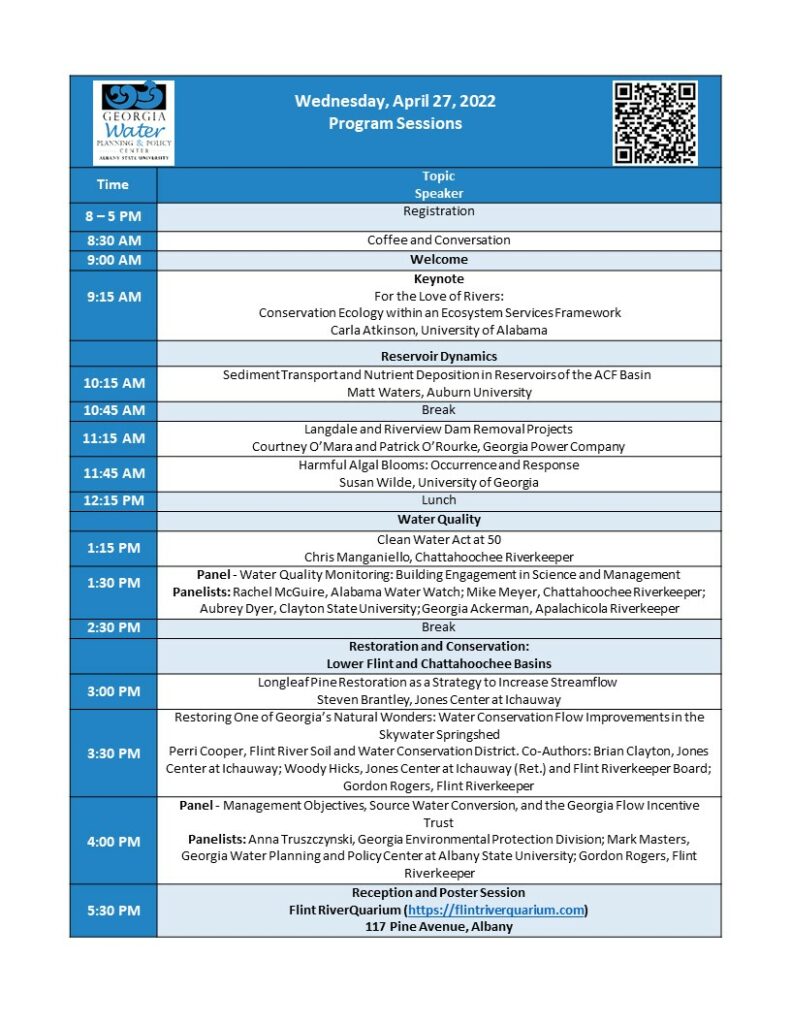
Morning Coffee and Conversation prior to the program.
Welcome presentation and logistics
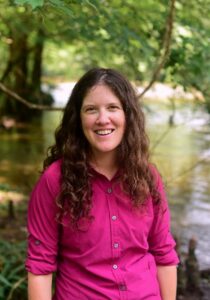
Dr. Carla L. Atkinson is an assistant professor in aquatic ecology in the Department of Biological Sciences at the Univ. of Alabama. She earned a B.S. in Biology from Missouri State University, a M.S. in Ecology from the Univ. of Georgia, a Ph.D. in Ecology & Evolutionary Biology from the Univ. of Oklahoma and received post-doctoral training in the Dept. of Ecology & Evolutionary Biology at Cornell Univ. Dr. Atkinson’s research in the field of aquatic ecology is strongly oriented towards the advancement of both basic scientific understanding as well as better conservation prioritization of biodiversity and ecosystems. Her research encompasses a broad set of long-standing questions in ecology such as the linkages between community structure & ecosystem function, food web structure and dynamics, landscape scale patterns dictating community assembly, and the importance of interactions between ecology and evolution for community and ecosystem processes. To address these questions, her lab employs a combination of observational approaches, field experiments, mesocosm, and laboratory studies. The fundamental theme linking these diverse topics in both basic and applied ecology is her deep interest in the role biodiversity plays in ecological function.
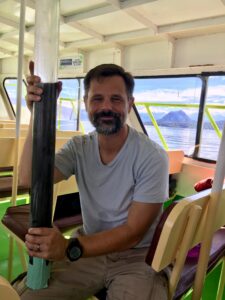
Dr. Matthew Waters is an Associate Professor of Environmental Sciences at Auburn University where he leads the Auburn Paleoenvironmental Laboratory. Trained as a classic limnologist and paleolimnologist, Dr. Waters and his students attempt to develop and apply geochemical analysis on sediment cores collected from natural lake systems to better understand the ecological dynamics of cyanobacteria and the triggers of cyanotoxin production. His studies focus on the SE USA and Mesoamerica.
 Courtney O’Mara, Georgia Power Company
Courtney O’Mara, Georgia Power Company
Courtenay O’Mara is the Supervisor of Hydro Licensing and Compliance for Southern Company, where she manages the FERC relicensings and compliance filings for Georgia Power’s 17 Hydroelectric Projects. Prior to her 19 years at Southern Company, Courtenay previously worked as an engineering consultant and at Waste Management. She holds a Bachelor of Civil Engineering from Georgia Tech, an MBA-Finance from Georgia State University and is a registered Professional Engineer in Georgia.
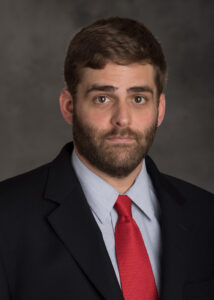 Patrick O'Rourke, Georgia Power Company
Patrick O'Rourke, Georgia Power Company
Patrick O’Rouke is a biologist with Georgia Power Company, where he supports licensing and compliance efforts related to fisheries and aquatic plants. Previously, he worked for the Georgia Wildlife Resources Division as a fisheries biologist, the Georgia General Assembly as a Senate committee aide, and the American Sportfishing Association as a policy fellow. He holds a BSFR in Fisheries and Aquaculture from the University of Georgia’s Warnell School of Forestry & Natural Resources and a MS in Fisheries and Aquatic Sciences from the University of Florida.
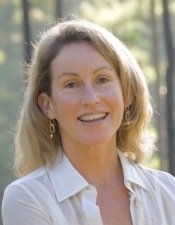 Susan Wilde is Associate Professor of Aquatic Sciences at the Warnell School of Forest Resources, University of Georgia. Her research interests include ecological impacts of harmful algal blooms in freshwater and marine systems on fish and wildlife; watershed development, stormwater best management practices, and impacts on water quality; toxic cyanobacteria, invasive plants, reservoir limnology, and Avian Vacuolar Myelinopathy; and interactions between invasive and endangered species and co-occurrence of pathogens and harmful algal blooms. She has a Ph.D. and M.S. from the University of Georgia and a B.S. in Ecology, Ethology, and Evolution from the University of Illinois.
Susan Wilde is Associate Professor of Aquatic Sciences at the Warnell School of Forest Resources, University of Georgia. Her research interests include ecological impacts of harmful algal blooms in freshwater and marine systems on fish and wildlife; watershed development, stormwater best management practices, and impacts on water quality; toxic cyanobacteria, invasive plants, reservoir limnology, and Avian Vacuolar Myelinopathy; and interactions between invasive and endangered species and co-occurrence of pathogens and harmful algal blooms. She has a Ph.D. and M.S. from the University of Georgia and a B.S. in Ecology, Ethology, and Evolution from the University of Illinois.
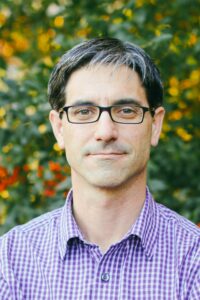
Christopher J. Manganiello (PhD) is Chattahoochee Riverkeeper’s Water Policy Director. He leads Chattahoochee Riverkeeper’s water supply program, tracks regional water planning, and works on legislative initiatives to ensure there is enough clean water for communities, environments, and economies that face a changing climate. Since 2010, Chris has provided strategic policy analysis and direction for the Georgia Water Coalition. Chris has written extensively on natural resource topics including energy, water, agriculture, and wildlife. He wrote a book, titled Southern Water, Southern Power: How the Politics of Cheap Energy and Water Scarcity Shaped a Region (University of North Carolina Press), and was co-editor, with Paul S. Sutter, of Environmental History and the American South: A Reader (University of Georgia Press). He has published in Environmental History, the Journal of the History of Biology, the Journal of Southern History, and Southern Cultures. Additionally, Chris has written and served as a subject matter expert for the Washington Post, the Atlanta Journal Constitution, radio, and other media outlets.
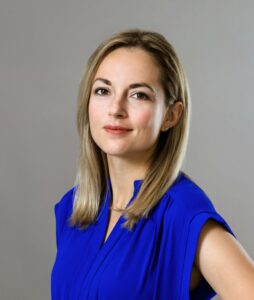 Panelists: Rachel McGuire, Alabama Water Watch; Mike Meyer, Chattahoochee Riverkeeper; Dr. Aubrey Dyer, Clayton State University; Georgia Ackerman, Apalachicola Riverkeeper (See all Biographies below)
Panelists: Rachel McGuire, Alabama Water Watch; Mike Meyer, Chattahoochee Riverkeeper; Dr. Aubrey Dyer, Clayton State University; Georgia Ackerman, Apalachicola Riverkeeper (See all Biographies below)
Rachel McGuire, Auburn University Water Resources Center
Rachel has a B.S. in Fisheries, Wildlife, and Conservation Biology from North Carolina State University and a M.S. in Wildlife Sciences from Auburn University. She worked as a field biologist conducting ecological monitoring and land management of stream, wetland, and endangered species mitigation banks in Alabama, Mississippi, and Florida before joining the Auburn University Water Resources Center in 2018, where she currently serves as the Programs & Communications Coordinator. Her duties include dissemination of regional drought outreach, managing the US Geological Survey Alabama Water Resources Research Institute, coordinating the annual Alabama Water Resources Conference, and recruiting and training citizen volunteer water quality monitors for the Alabama Water Watch Program.
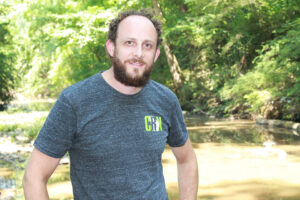
Mike Meyer, Chattahoochee Riverkeeper
Mike Meyer is CRK’s ever enthusiastic Program Director of Neighborhood Water Watch. From working with a team of volunteers and staff to detect and address contamination sources in the Chattahoochee River and its tributaries through North Georgia’s most comprehensive and impactful monitoring & reclamation program NWW, conducting follow up investigations, hotline responses, & education initiatives through Adopt-A-Stream trainings & presentations. Mike can be found working side-by side with community or chest deep in our local waterways conducting field inspections. Originally from Buffalo, N.Y., he was first introduced to Atlanta’s water quality issues in 2001, while working with Southeast Waters, an AmeriCorps program. After graduating from Oglethorpe Univ. with a B.S. in biology, he began an internship with CRK, which led to his employment in the Technical Programs Department. An avid environmentalist, trained watershed protection specialist and certified Erosion and Sediment Control Inspector, Mike is interested in working to improve urban waterways and greenspaces.

Aubrey Dyer, Clayton State University
Aubrey Dyer has been a faculty member in the Department of Chemistry and Physics at Clayton State University since 2014. Before that, she was a research scientist at Georgia Tech (2012 – 2014) and the University of Florida (2007 – 2011). She obtained her B.S. in Chemistry from Shippensburg University and her Ph.D. in Analytical Chemistry from the University of Florida in 2007. She is the director of the Laboratory for Water Quality at Clayton State University that was founded this past year.
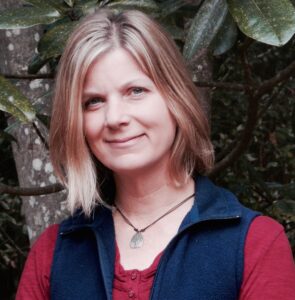
Georgia Ackerman, Apalachicola Riverkeeper
Georgia Ackerman joined the Apalachicola Riverkeeper team in December 2017 and serves as Riverkeeper & Executive Director. Georgia has been involved with Apalachicola Riverkeeper for over a decade as a business sponsor, a program volunteer and board member. She’s a graduate of Florida State and Arizona State universities. Georgia is an avid kayaker & outdoor enthusiast. She ran a north Florida ecotourism company for nearly a decade where she began exploring the Apalachicola River as an outings volunteer with Apalachicola Riverkeeper. After selling her business in 2013, she was recruited to lead a regional conservation awareness initiative at Tall Timbers. Georgia has also worked with the Red Hills Small Farm Alliance to help promote local, sustainable farming.
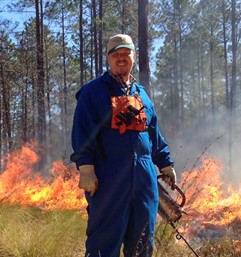
Steven Brantley, Jones Center at Ichauway
Steven received his B.S. and M.S. in Biology and his Ph.D. (2009) in Integrative Life Sciences, all from Virginia Commonwealth University. His graduate research focused on the consequences of shrub expansion on Virginia barrier islands. He then worked as a post-doctoral researcher at the U.S. Forest Service Coweeta Hydrologic Lab where he studied the effects of tree species composition on forest water use, the hydrologic effects of the hemlock woolly adelgid infestation, and strategies for conserving surviving hemlock trees. Steven joined the Jones Center staff in 2014 as an ecohydrologist. His current research program focuses on the effects of vegetation on watershed yield, and the effects of water availability on forest plant communities.
Perri Cooper, Flint River Soil and Water Conservation District. Co-Authors: Brian Clayton, Jones Center at Ichauway; Woody Hicks, Jones Center at Ichauway (Ret.) and Flint Riverkeeper Board; Gordon Rogers, Flint Riverkeeper (Please see Biographies below)
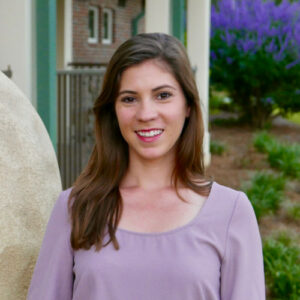 Perri Cooper, Flint River Soil & Water Conservation District
Perri Cooper, Flint River Soil & Water Conservation District
Perri is a passionate advocate for conservation and agriculture across the region. Perri is a graduate of the University of Georgia College of Agriculture & Environmental Sciences and Georgia State Andrew Young School of Policy with several years of past experience in the non-profit sector. Through this intersection of experiences, Perri explores the conversion of production agriculture, conservation, and policy. As an Atlanta native who now lives and works in southwest Georgia, Perri brings a unique perspective to the sector. In April 2019, she joined the Flint River Soil & Water Conservation District as Project Director and transitioned into the role of Executive Director later that year. Perri is a recent graduate of the Institute for Georgia Environmental Leadership and serves on the board of Flint River Fresh, Inc. She lives in Americus with her husband, Donn, who also works locally in the agricultural sector. Their shared love of land means you can often find them outside in their garden, in their kayaks, or enjoying Perri’s family land with their pets, Sanu & Deacon.
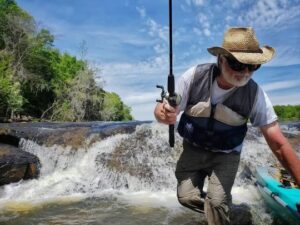
Gordon Rogers, Flint Riverkeeper
Gordon Rogers was raised in South Georgia. He graduated high school from Glynn Academy in Brunswick, attended Oxford College of Emory University (Oxford), the University of Georgia (Athens), and Skidaway Institute of Oceanography (Savannah). Following schooling Gordon was employed by the Georgia Dept. of Natural Resources at their Coastal Resources Division office in Brunswick. He was initially a fisheries statistician and later a marine biologist & policy analyst. After 10 years at GADNR he worked in the waste and recycling industry for 9 years. He also fished professionally and taught about fishing. He served as the Executive Director and Riverkeeper® at Satilla Riverkeeper® for five years and was appointed ED and Riverkeeper® for the Flint in 2009. Gordon has published in peer-reviewed journals on fisheries, ecological, and communications topics. He has written many articles and reports on fisheries, environmental advocacy, communications, and non-profit operations. He has made numerous public presentations. Gina and Gordon live in Talbot County on a farm at Old Ypsilanti, near the center of stellar paddling and shoal bass fishing along the upper Flint. They enjoy fishing, hunting, paddle sports, reading, cooking, NCAA football, and being with friends and family.
Panelists: Anna Truszczynski, Georgia Environmental Protection Division; Mark Masters, Georgia Water Planning and Policy Center at Albany State University; Gordon Rogers, Flint RiverKeeper (See all the biographies below)
Anna Truszczynski, Georgia Environmental Protection Division
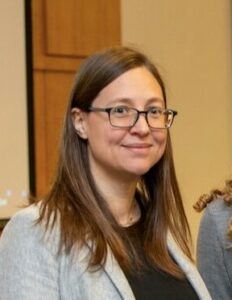
Anna Truszczynski is the Chief of the Watershed Protection Branch of the Georgia Environmental Protection Division. Anna previously served as the Assistant Branch Chief, with responsibilities including leading branch-wide initiatives and oversight of compliance, watershed planning and monitoring, and nonpoint source programs. Anna has also served as EPD’s Nonpoint Source Program Manager and Stormwater Unit Manager. Prior to joining the State, Anna served as the manager of Athens-Clarke County’s Stormwater Management Program. Anna holds a bachelor’s degree from Washington University in St. Louis in Environmental Studies with an emphasis in policy and a PhD in Ecology and Evolution from the University of California, Davis.
Mark Masters, Georgia Water Planning and Policy Center at Albany State University
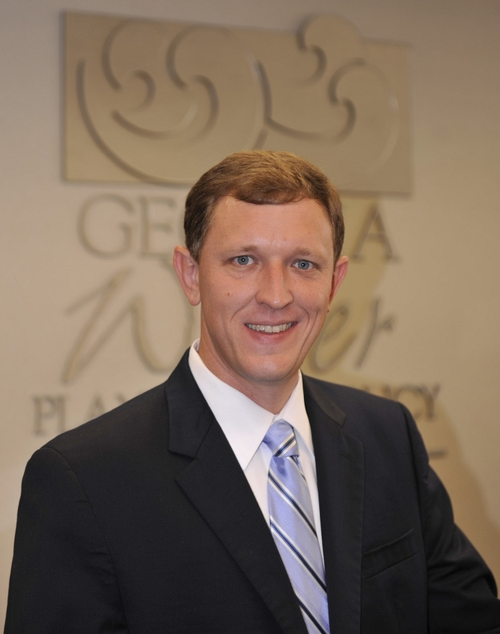
Mark Masters currently serves as Director of the Georgia Water Planning and Policy Center at Albany State University and is a leading expert in agricultural water use and policy in the Southeastern U.S. Throughout his career, Mark has led numerous research and outreach projects related to water resources in Georgia and has positioned the Center as a trusted technical resource for the State and its water planning efforts. Mark is active on a number of local, state and national advisory boards including the American Farm Bureau Water Advisory Committee, Governor’s Soil and Water Advisory Committee, the Institute for Georgia Environmental Leadership Board of Directors.
Gordon Rogers, Flint Riverkeeper
 Gordon Rogers was raised in South Georgia. He graduated high school from Glynn Academy in Brunswick, attended Oxford College of Emory University (Oxford), the University of Georgia (Athens), and Skidaway Institute of Oceanography (Savannah). Following schooling Gordon was employed by the Georgia Dept. of Natural Resources at their Coastal Resources Division office in Brunswick. He was initially a fisheries statistician and later a marine biologist & policy analyst. After 10 years at GADNR he worked in the waste and recycling industry for 9 years. He also fished professionally and taught about fishing. He served as the Executive Director and Riverkeeper® at Satilla Riverkeeper® for five years and was appointed ED and Riverkeeper® for the Flint in 2009. Gordon has published in peer-reviewed journals on fisheries, ecological, and communications topics. He has written many articles and reports on fisheries, environmental advocacy, communications, and non-profit operations. He has made numerous public presentations. Gina and Gordon live in Talbot County on a farm at Old Ypsilanti, near the center of stellar paddling and shoal bass fishing along the upper Flint. They enjoy fishing, hunting, paddle sports, reading, cooking, NCAA football, and being with friends and family.
Gordon Rogers was raised in South Georgia. He graduated high school from Glynn Academy in Brunswick, attended Oxford College of Emory University (Oxford), the University of Georgia (Athens), and Skidaway Institute of Oceanography (Savannah). Following schooling Gordon was employed by the Georgia Dept. of Natural Resources at their Coastal Resources Division office in Brunswick. He was initially a fisheries statistician and later a marine biologist & policy analyst. After 10 years at GADNR he worked in the waste and recycling industry for 9 years. He also fished professionally and taught about fishing. He served as the Executive Director and Riverkeeper® at Satilla Riverkeeper® for five years and was appointed ED and Riverkeeper® for the Flint in 2009. Gordon has published in peer-reviewed journals on fisheries, ecological, and communications topics. He has written many articles and reports on fisheries, environmental advocacy, communications, and non-profit operations. He has made numerous public presentations. Gina and Gordon live in Talbot County on a farm at Old Ypsilanti, near the center of stellar paddling and shoal bass fishing along the upper Flint. They enjoy fishing, hunting, paddle sports, reading, cooking, NCAA football, and being with friends and family.
5:30 PM Reception and Poster Session at Flint RiverQuarium
(https://flintriverquarium.com) located at 117 Pine Avenue, Albany
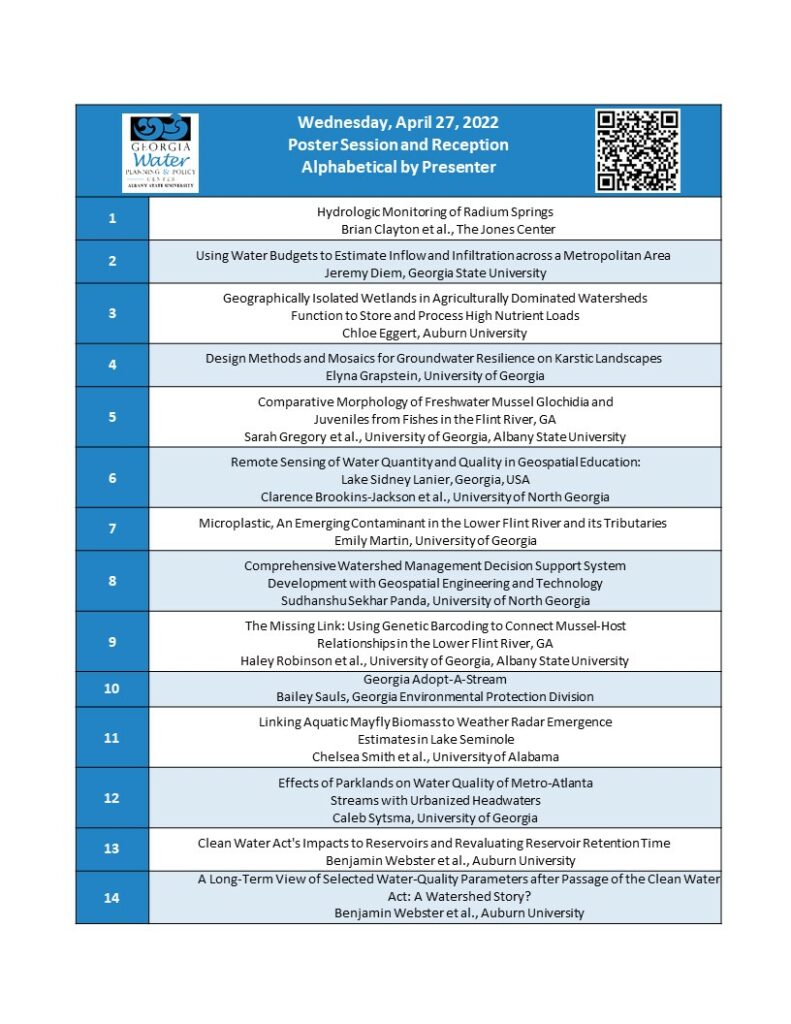
Thursday, April 28
Thursday, April 28, Registration Open 8-5 PM
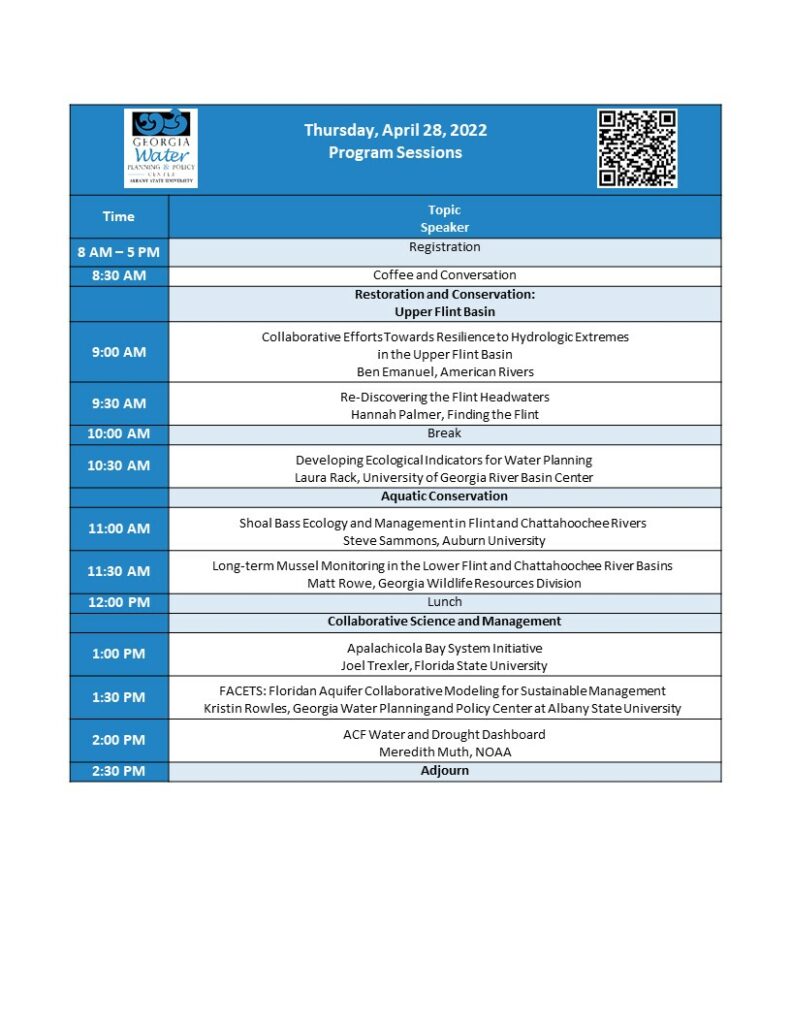
8:30 AM Coffee and Conversation
Ben Emanuel, American Rivers
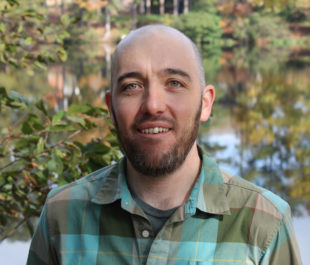 Ben Emanuel leads American Rivers’ conservation work in Georgia. He has led the organization’s efforts to convene the Upper Flint River Working Group, which is focused on drought resilience in the upper basin, and he is part of a team of collaborators that launched the Finding the Flint initiative, focused on the Flint River headwaters, in 2017. He has been with American Rivers since 2011. Prior to that, he worked with local and state river conservation groups in Georgia and was part of an independent project called the Georgia River Survey. Ben is a native of Atlanta and a graduate of the University of Georgia.
Ben Emanuel leads American Rivers’ conservation work in Georgia. He has led the organization’s efforts to convene the Upper Flint River Working Group, which is focused on drought resilience in the upper basin, and he is part of a team of collaborators that launched the Finding the Flint initiative, focused on the Flint River headwaters, in 2017. He has been with American Rivers since 2011. Prior to that, he worked with local and state river conservation groups in Georgia and was part of an independent project called the Georgia River Survey. Ben is a native of Atlanta and a graduate of the University of Georgia.
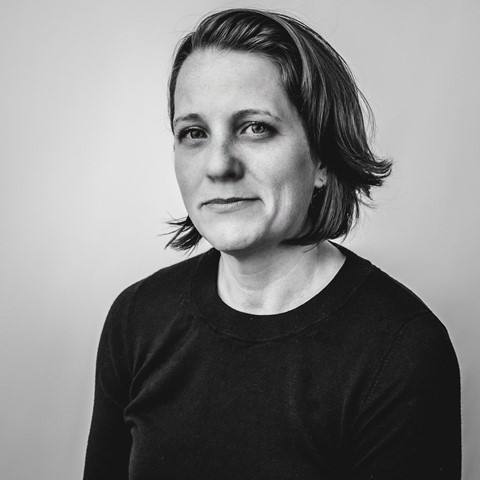 Hannah Palmer, Finding the Flint
Hannah Palmer, Finding the Flint
Hannah Palmer is the author of the award-winning memoir, Flight Path: A Search for Roots beneath the World’s Busiest Airport. Hannah’s essays are informed by her work as an urban designer and appear in such venues as Southern Cultures, Art Papers, Atlanta Magazine, and Otium Journal. Palmer’s work documenting the lost neighborhoods around Atlanta’s “world’s busiest” airport grew into Finding the Flint, a campaign to restore the hidden headwaters of Georgia’s Flint River. Since 2018, this focus on environmental justice led her to other privatized, segregated, and sullied waters of the urban south and invitations to present at Creative Mornings, Pop Up Zine, and in exhibitions at the Atlanta Airport and the University of Alabama. A graduate of Agnes Scott College, Palmer earned an MFA in Creative Writing from Sewanee: The University of the South. She lives on the southside of Atlanta with her husband and sons.
Laura Rack, University of Georgia River Basin Center
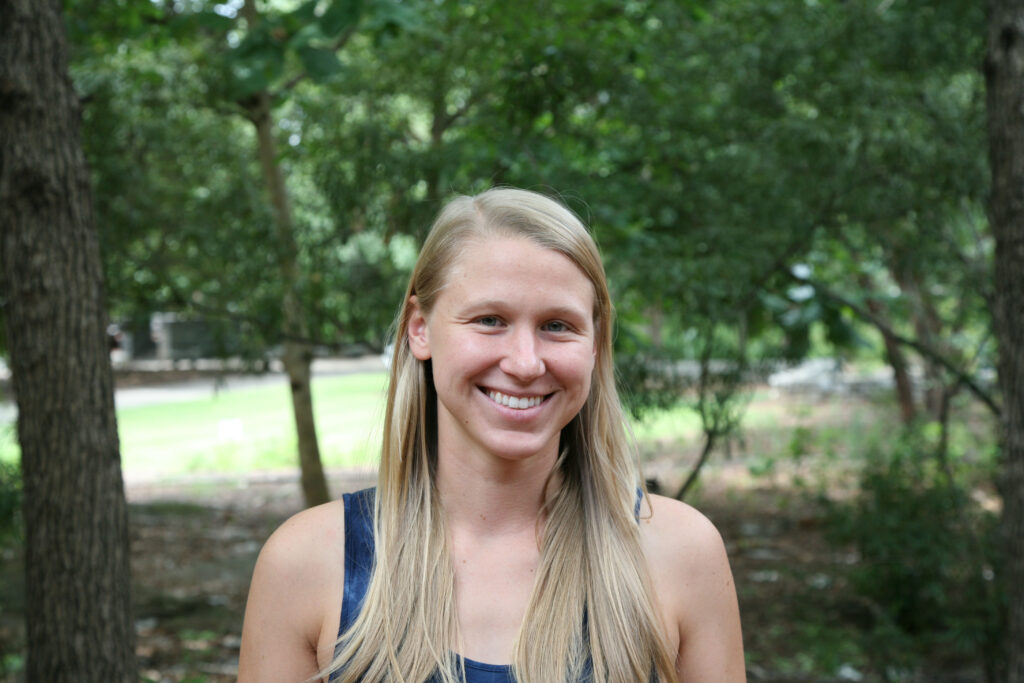 Laura Rack is a PhD student in Odum School of Ecology at the University of Georgia. Her master’s work focused on the impact of low-flows on biota in perennial system. During that time, she worked with the Upper Flint River Working group to identify potential ecological consequences of severe low-flow in the shoals of the Upper Flint River. She is very interested in connecting ecological research with management and planning processes and is continuing to work on developing ecological metrics for water planning. In her free time, she enjoys running with friends in Athens and finding new spots for trail runs.
Laura Rack is a PhD student in Odum School of Ecology at the University of Georgia. Her master’s work focused on the impact of low-flows on biota in perennial system. During that time, she worked with the Upper Flint River Working group to identify potential ecological consequences of severe low-flow in the shoals of the Upper Flint River. She is very interested in connecting ecological research with management and planning processes and is continuing to work on developing ecological metrics for water planning. In her free time, she enjoys running with friends in Athens and finding new spots for trail runs.
Steve Sammons, Auburn University
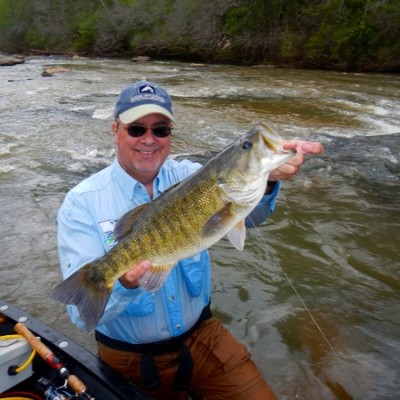
I am a classically-trained fisheries management scientist who also now dabbles in conservation of large endemic fishes such as Shoal Bass, Alabama Shad, & Gulf-strain Striped Bass. My work typically lies at the intersection of management and ecology, attempting to bridge the gap between sensible conservation and sustainable management. I am trained in traditional population dynamics, including the use of age-structured models to predict benefits and costs of implementing various harvest restrictions on fish populations. I have taught these concepts at the university level, as well as conducted several workshops for state and federal fisheries biologists in the use of these techniques. In my spare time, I currently serve as Fisheries Editor for the Journal of the Southeastern Associated Fish and Wildlife Agencies.
Matt Rowe, Georgia Wildlife Resources Division
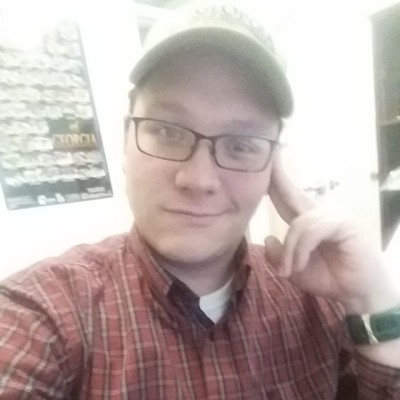 I'm an aquatic conservation biologist with a passion for biodiversity. I focus primarily on North American freshwater mussels and aquatic invertebrates in general. Matthew Rowe currently works at the Wildlife Conservation Division, Georgia Department of Natural Resources. Matthew does research in freshwater mussel conservation, ecology, biology, and genetics in the southeast with a focus on Eastern Gulf and Southern Atlantic Slope rivers.
I'm an aquatic conservation biologist with a passion for biodiversity. I focus primarily on North American freshwater mussels and aquatic invertebrates in general. Matthew Rowe currently works at the Wildlife Conservation Division, Georgia Department of Natural Resources. Matthew does research in freshwater mussel conservation, ecology, biology, and genetics in the southeast with a focus on Eastern Gulf and Southern Atlantic Slope rivers.
Joel Trexler, Florida State University
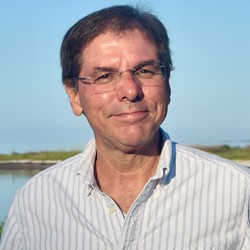 Joel Trexler is the Director of the Coastal and Marine Laboratory and Professor of Biological Science at Florida State University. He studies fish and aquatic invertebrates, focusing on how organisms fit into their biotic and abiotic environments, how they affect their environment, and it affects them. For 29 years, he has been engaged in efforts to manage and restore the Everglades (Florida, USA) and worked closely with State and Federal agencies to support monitoring and assessment of the Comprehensive Everglades Restoration Plan (CERP). Recent work focuses on the controls of aquatic animal population and community dynamics, as well as food-web function; the impact of spatial and historical context on system dynamics is a central element of his research. He is co-principal investigator of the Apalachicola Bay System Initiative. He has a Ph.D. and M.Sc. in Biology from Florida State University and a B.Sc. in Marine Biology from the University of South Carolina.
Joel Trexler is the Director of the Coastal and Marine Laboratory and Professor of Biological Science at Florida State University. He studies fish and aquatic invertebrates, focusing on how organisms fit into their biotic and abiotic environments, how they affect their environment, and it affects them. For 29 years, he has been engaged in efforts to manage and restore the Everglades (Florida, USA) and worked closely with State and Federal agencies to support monitoring and assessment of the Comprehensive Everglades Restoration Plan (CERP). Recent work focuses on the controls of aquatic animal population and community dynamics, as well as food-web function; the impact of spatial and historical context on system dynamics is a central element of his research. He is co-principal investigator of the Apalachicola Bay System Initiative. He has a Ph.D. and M.Sc. in Biology from Florida State University and a B.Sc. in Marine Biology from the University of South Carolina.
Kristin Rowles, Georgia Water Planning and Policy Center at Albany State University
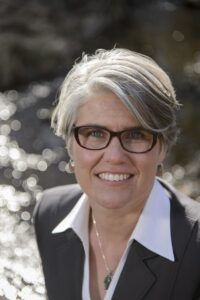
Decatur, GA. February 27, 2014. Kristin Rowles -- Photo by Michael A. Schwarz,
Kristin Rowles has been associated with the Center since 2004. She has 30 years of experience in coordinating environmental planning and research projects and facilitating stakeholder engagement in water resources management. She has worked with many public and private entities – in Georgia and beyond -- to advance water resources planning and research through facilitation, technical support, and communication services. Her work has focused on a broad range of environmental resource issues including water quality, water conservation, watershed management, endangered species protection, waste management, land conservation, habitat restoration, stormwater management, and fisheries.
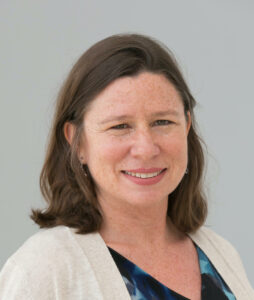
Meredith Muth, NOAA
Meredith Muth works for NOAA's National Integrated Drought Information System (NIDIS) program and serves as the Regional Drought Information Coordinator for the Southeast Drought Early Warning System (DEWS) network. She has spent the last 12 years at NOAA working on weather and climate services. Before moving to the 'dry side', Meredith worked as a coastal ecologist for over a decade and holds a Ph.D. in Environmental Sciences from the University of Virginia.
